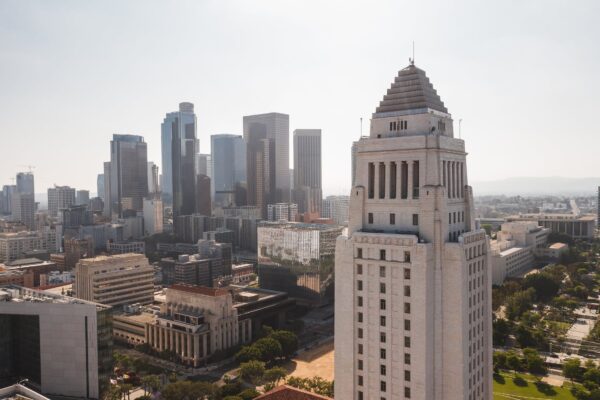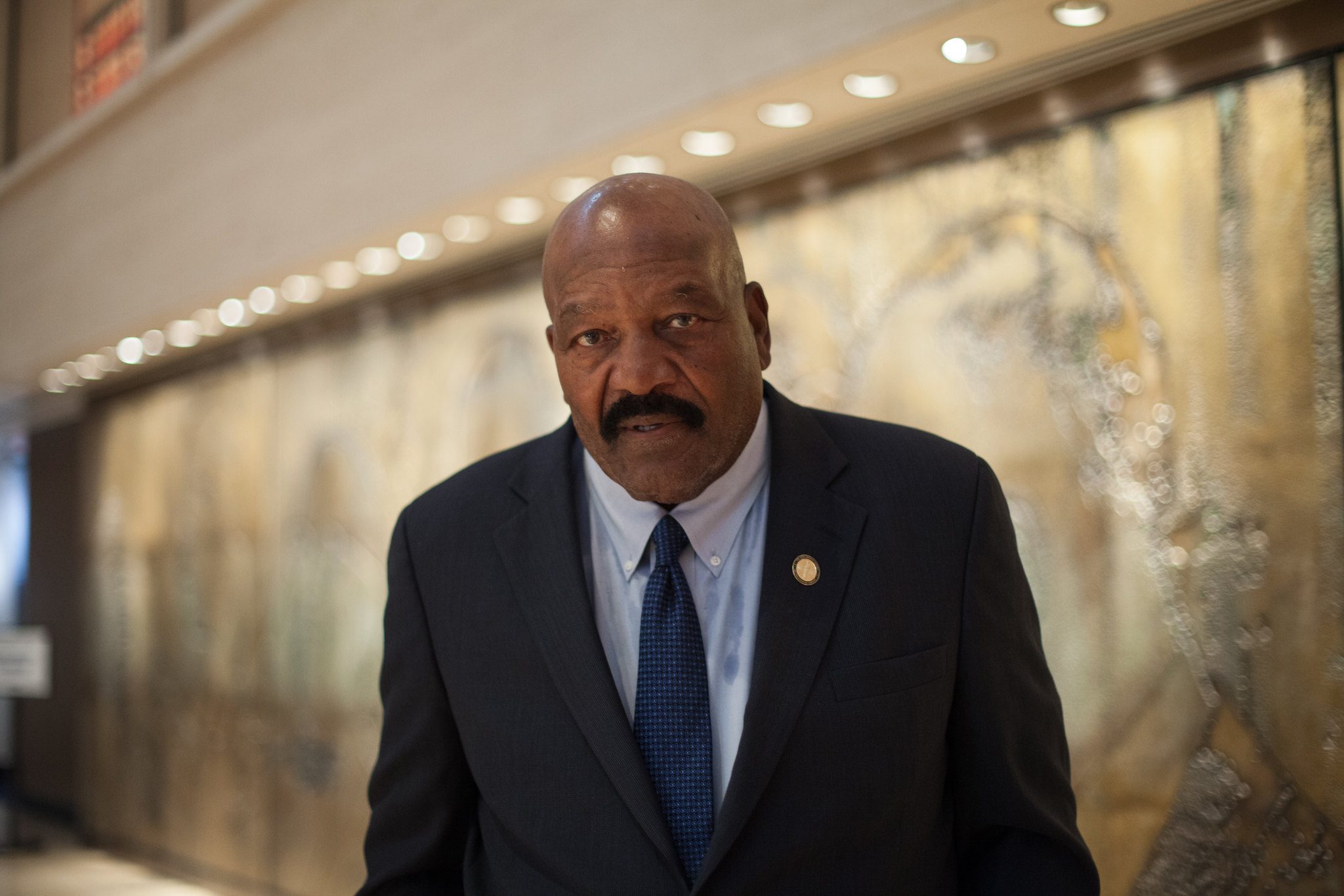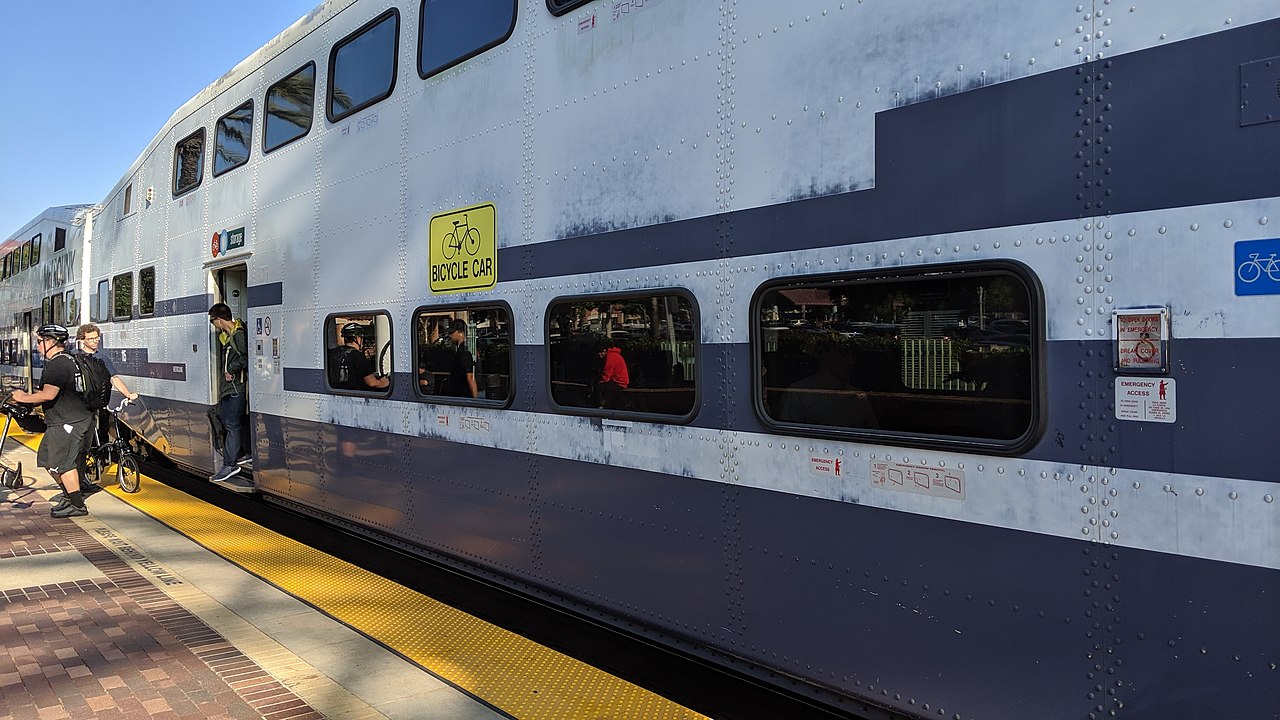By Jose Herrera
The Los Angeles City Council Thursday voted 13-1 to approve its amended version of Mayor Karen Bass’ proposed $13 billion city budget for the 2023-24 fiscal year.
The budget includes an unprecedented $1.3 billion to address housing and homelessness and approximately $3.2 billion for the Los Angeles Police Department.
Following the recommendations of the Budget, Finance and Innovation Committee, Council President Paul Krekorian said in a statement that the council “built on the broad outline of the mayor’s proposed budget” with amendments to ensure “transparency and accountability” in the city’s spending. The 2023-24 budget tops $13 billion for the first time, a $1.31 billion, or 11%, increase, from the prior fiscal year and includes $566 million in a reserve fund.
Krekorian in a statement thanked the mayor, Councilman Bob Blumenfield — chair of the Budget Committee — and the entire City Council for completing a budget that “honors the city’s priorities, respects our fiscal realities and fully reflects the needs of all our constituents.”
“I was proud to see the Council set aside very real differences to focus on areas of agreement, reflecting the best of consensus building,” Krekorian said in a statement.
The budget invests in affordable and supportive housing, funding for more personnel — police, firefighters emergency personnel, unarmed mental health responders and civilian staff — and makes “needed investments” in pedestrian, traffic safety and city infrastructure.
The vote instructed the chief legislative analyst’s office to draft an ordinance formally adopting the budget, an ordinance the council will look to adopt next week. Bass will still need to sign the new version of the budget before it becomes official.
Councilwoman Eunisses Hernandez was the lone “no” vote and said the budget “fell far short” of meeting the needs of Angelenos.
“I don’t believe that the proposal put forward today is responsible budgeting, and I will not go back to my constituents and tell them that $13 billion doesn’t include enough money to deliver the basic municipal services that they deserve and demand,” Hernandez said.
Bass said the council’s action Thursday would “make Los Angeles more livable for all.”
“It will allow us to confront the emergency of homelessness with the urgency we need and make innovative investments in bold new methods to make our neighborhoods safer,” Bass said in a statement.
Among the significant items in the budget are those addressing the homelessness emergency including $250 million for the mayor’s Inside Safe program, with $65.7 million allocated initially and $184.3 million to be released as the funds are expended. Once the Inside Safe account drops below $25 million, the account would be automatically replenished up to $50 million.
The plan provides the City Council with the ability to halt the replenishment of the Inside Safe account, for example, if they wanted more information about how the funds are being expended or details of ongoing operations. Bass’ office would need to provide biweekly progress reports starting June 1, as well.
Additional funds provide for the acquisition of interim and permanent housing; for substance use disorder treatment beds, funded with revenue received from an opioid settlement.
Key areas of the budget for Inside Safe will allocate $110 million to pay for motel and other interim housing costs; $47 million to acquire motels and hotels to reduce future program costs; $10 million set aside for staff; $62 million for ongoing services such as case management, food, residential staff and support services; and $21 million for the development of transition and permanent housing and the establishment of a 12-month rental assistance program.
The city also expects to generate $672 million from Measure ULA, known by some as the “mansion tax,” which enacted a 4% tax on properties sold for more than $5 million and a 5.5% tax on properties sold for more than $10 million and went into effect April 1. However, ongoing litigation has caused some concerns in Bass’ office about the future of that measure.
The $150 million from Measure ULA will be used to support the city’s efforts to address homelessness.
The budget also seeks to restore LAPD staffing to 9,500 officers, at the minimum, with two full classes of recruits in training and additional funding to return retired police officers to active duty for 12 months, hire additional civilian personnel and increase staffing for 911 dispatch services.
Direct funding for the LAPD decreased by about $22 million compared to last year, as council members pointed to salary savings for that decrease.
About $1 million is slated to expedite the application process for candidates looking to join the LAPD. The city’s budget will also fund an incentive program providing bonuses of up to $15,000 for new officers and lateral recruitment.
It additionally funds the new Mayor’s Office of Community Safety and build out the infrastructure for non-law-enforcement responses. It will house the city’s Gang Reduction and Youth Development, Summer Night Lights, Crisis Response Team, Crisis and Incident Response Through Community-Led Engagement and the Domestic Abuse Response Team.
The budget increases funding for GRYD from $28 million to $48 million, as well as provide funding to expand services under the Crisis Response Team and maintain seven teams operating in six regions of the city through CIRCLE, a 24/7 unarmed response program aimed at addressing nonemergency police calls related to homelessness.
DART’s funding would increase by nearly $1 million to $3.7 million, which will double the number of DART workers to address 911 calls involving domestic violence.
Bass said she carved out funding to address poverty and income inequality in various ways, such as connecting people to jobs and opportunities and supporting families and children.
Budget highlights include $3 million for LA: Rise, $3 million for Hire LA Youth and funding to continue CleanLA, a program that serves as a pathway to city employment.
Furthermore, the LA’s Best after-school enrichment program will receive nearly $4 million to pay for positions, bus transportation and training; the city will also provide $5 million to support childcare centers and $18 million for senior meals.
The budget includes provisions to support small and local businesses, enhancing tourism, expanding and continued the city’s al fresco program, as well as investing in the environment through zero-carbon emission goals and green initiatives.
“Climate change is the issue of our time,” Blumenfield said. “We’re putting record amounts into decarburization into our vehicle fleet — transforming that and transforming our buildings.”
Funds for city infrastructure will also receive a boost as the mayor indicated an additional $28 million to its already required $36 million for sidewalk repairs, and $8 million to improve bus shelters and benches throughout the city.
Council members said the budget allocates $3.5 million to expand the speed hump program with a focus around schools.
Los Angeles Animal Services will receive an increase in funding to improve volunteer coordination, hire staff and enhance animal health services and adoptions. The department’s previous allocation of $26.9 million will increase to $31.7 million — a boost of $4.8 million.
The Los Angeles Zoo will receive more funding, with $2.5 million to address facility repairs and $4.1 million for design work on larger capital improvements.
Overall, the budget projects short-term stability, but at a slower than historical growth rate in the city’s tax revenues of only 2.4%. The overall general fund budget will grow by 5.6%, in part due to a $115 million transfer from the reserve fund. The budget also includes reserves of 10.03%, just above the 10% target set in the city’s financial policies.
“From day one, this Council — every single member of this Council — has demonstrated their deep devotion to serving the public with their incredible sense of responsibility,” Blumenfield said. “Even though we come to our issues from different perspectives, it’s very clear that there’s unanimity and the level of dedication and passion about serving the public.”







